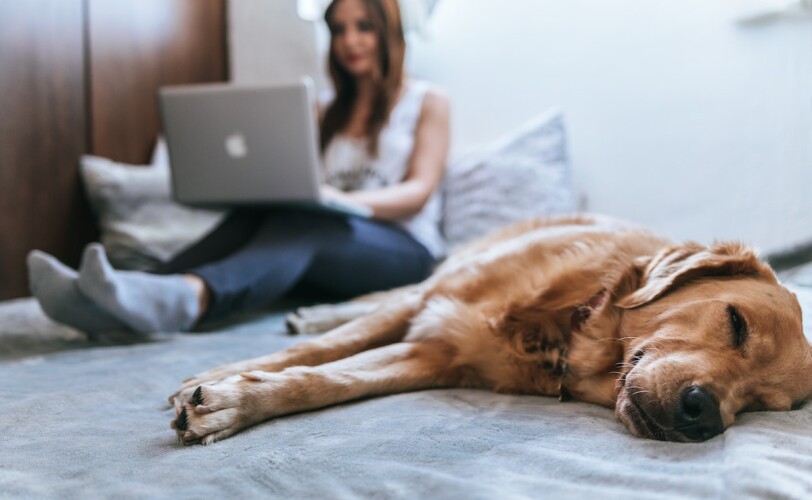The importance of sleep
We will spend 32 years of our lives asleep; it is crucial to our health and is the most important behavioural experience that we have. Professional athletes recognise the importance of healthy sleep: American quarterback Tom Brady enjoys nine hours of sleep a night, going to bed at 9 pm every night. Some athletes such as Roger Federer enjoy 10 to 12 hours of sleep.

Despite this, many of us do not get enough sleep nor do we rate the importance of sleep.
Adults require eight hours of sleep a night, however on average are only having six and a half hours worth of sleep a night.
Teenagers require nine hours of sleep a night and have a biological predisposition that makes them want to go to bed late and get up late, therefore, because school starts at or before 9 am, on school nights many are only having five hours of sleep.
Around 20% of the working population do shift work, however humans are not designed to have a moving sleeping pattern. This is reflected in the numerous studies on people who have been shift workers for significant proportions of their career, shift workers are likely to have a reduced life expectancy and are more likely to be diagnosed with cancer. There has also been an increase in night shift workers, which is associated with higher rates of depression, anxiety and stress.
Effects of lack of sleep
But what are the other effects of a sustained lack of sleep?
Lacking sleep over a short period of time will have its symptoms (tiredness, poor judgement, increased impulsiveness) but the body can soon recover, when we continuously struggle with sleep, other issues start to occur.
If you sleep five hours or less, you have a 50% likelihood of being obese, this is because the hunger hormone, Ghrelin is released when we are sleep deprived.
Sleep deprivation also causes increased stress which opens up another raft of consequences. Sleep-deprived individuals tend to have higher rates of infection due to the stress-reducing immune system function. Headaches, chest pains, upset stomachs and many other issues also come from stress and because stress increases levels of alertness it can lead to further insomnia, causing a vicious cycle.
Sleep-deprived people often turn to stimulants to cope with the tiredness, caffeine is the most commonly used stimulant to the central nervous system which then boosts alertness. Not only can this lead to a dependence on caffeine, but because these individuals are so alert when it is time to sleep, that they can turn to alcohol.
Large amounts of alcohol acts in the opposite way to caffeine as a depressant. However, alcohol reduces the amount of REM sleep and can harm some of the important neural processes involved in sleep. Thus demonstrating how caffeine and alcohol can catch sleep-deprived people in more vicious cycles, making it harder for them to return to healthy sleeping.
![Man on phone under duvet]() Sleep and mental illness
Sleep and mental illness
60-70% of patients suffering from depression or anxiety reported trouble sleeping. Many suffering schizophrenia were awake during the night and asleep during the day while others had no sleeping pattern what so ever. Since the 18th century we've been aware of the relationship between severe mental illness and sleep disruption, so what is going on?
From neuroscience, we have found the neural networks responsible for normal sleep and healthy mental health are overlapping. Also, genes shown to be important for normal sleep, when mutated will also predispose individuals to mental health problems.
Meaning, poor sleep can contribute to poor mental health and vice versa.
Improving sleep
The average amount of sleep necessary for an adult is eight hours, some people require more and some require less. To find out how much sleep you require simply listen to your body, how rested do I feel?
Avoid light before going to bed, light increases levels of alertness. Make your bedroom dark and slightly cool, using your bed only for sleeping and avoid caffeine late in the day. Find things that help you wind down and get you ready for sleep. Tom Brady shuts down all devices 30 minutes before sleep and keeps his bedroom temperature at 17-19 degrees celsius.
How Rochester Hypnotherapy clinic can help
There may be underlying reasons for your sleep deprivation and with hypnotherapy, we can uncover and resolve these causes. Also, if it is the result of poor mental health, i.e. depression or anxiety; then hypnotherapy can provide a flexible treatment to cater to your overall well-being.
A part of hypnotherapy is relaxation, in teaching these relaxation skills they can be used to help get you to sleep. Also, hypnotherapy can help directly with sleeping. Hypnotherapy deals with the subconscious mind which is the driving force of our behaviours, such as sleep. And self-hypnosis audio recordings are commonly provided to play to your subconscious during the time when are falling asleep.

Find a hypnotherapist dealing with Insomnia
All therapists are verified professionals
 Sleep and mental illness
Sleep and mental illness




